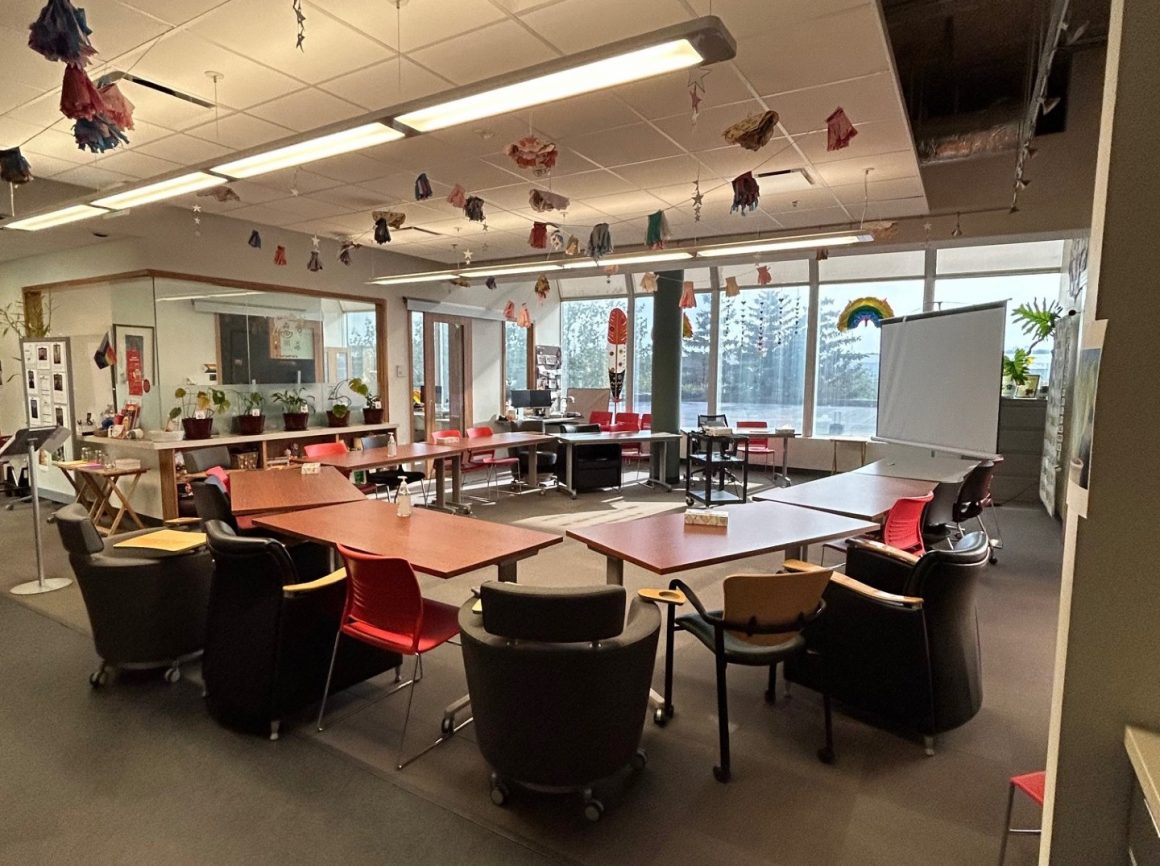
Student Success Centre’s neurodivergent panel reminds students they are not alone
By Freeha Anjum, September 26 2024—
Going from high school to university is an overwhelming change — classes are bigger, lectures are long and you need to go out of your way to make friends and navigate an entirely new environment. These are common challenges for people to face, but for some it can be much more daunting than others.
If you’re neurodivergent, you may have found the transition into undergraduate or graduate school seemingly more difficult than it is for most people. In an interview with the Gauntlet, Kamilah Maudsley — a second year undergraduate chemistry student and neurodivergent inclusive campus experience (NICE) mentor — spoke about the difficulties neurodivergent students face in particular when coming to university.
“There are a lot of expectations when it comes to certain skills that you’re expected to develop as you come out of high school,” said Kamilah. “But neurodivergent students are sometimes put at a disadvantage because higher executive function skills like time management and organisation work differently, and they may not have been taught to do those things in a way that works with how their brain processes information.”
To combat this at the Student Success Centre, the NICE program hosted a panel for first year neurodivergent students entering their undergraduate or graduate education at the U of C. The panel hoped to give students a heads-up on what it can be like entering the university environment as someone who identifies as neurodivergent.
“Resources and support are there for you. You are not alone, and for us as panellists, we have accomplished our goal if we help others feel the same way” said Alex Paquette, a PhD candidate in the department of Earth, Energy and Environment.
Paquette also works as a student engagement specialist with the work-integrated learning (WIL) initiative to support neurodivergent students to obtain WIL opportunities funded by the Sinneave Family Foundation.
The NICE panel was a casual environment in which each NICE mentor — a graduate or undergraduate student — presented a focused topic.
The panel was hosted by Kamilah Maudsley, along with panellists Faith Wegoye, Varinder Singh, Ariadna Alvarado, Amanda Dickson, and Alex Paquette. They discussed things to keep in mind when you’re entering a new phase of your studies, how to advocate for your needs and access resources as an incoming student, navigating the social aspects of university such as SU clubs and activities around campus, finding resilience in challenging times, trying new things to find your community at the university, and imposter syndrome/masking in graduate school.
The diversity of speakers allowed incoming students to gain a full picture of the challenges — and their corresponding solutions — to expect in both undergraduate and graduate school. Although some challenges are the same between the two, graduate school has additional challenges associated with the independence and lab work expected.
“Accommodations from your undergrad don’t typically transfer to graduate school, and you also don’t have someone side-by-side to help you like you do with undergraduate school. This is when you’ll start seeing people mask, because of those extra pressures in graduate school and that hidden curriculum of what a grad student is and what a grad student is supposed to be,” said Paquette.
Throughout student presentations, Heather Thompson — Academic Development Specialist & Coordinator for NICE — provided students with resources to access accommodations and supports on campus. This was beneficial for students interested in exploring the available supports in their own time. It also served to reinforce how many supports were available on campus for those struggling to adapt.
“We want to create a sense among incoming neurodivergent students that they are not alone. There are resources and a community at this university that has experience, and would love to help you and get to know you,” Maudsley shares in her interview.
Reinforcing this sense of community can be an important step in students feeling welcome in the space, and aware that the challenges they might face are not necessarily their fault. Knowing you are not the only one struggling can go a long way, and Maudsley expands on her own experiences with feeling isolated.
“I spent a lot of time earlier in university beating myself up and thinking I was lazy and stupid for some of the barriers that I encountered, and for not being ‘smart enough to figure them out on my own.’ I would have felt a lot better if I realised sooner that it wasn’t my fault,” said Maudsley.
Students were engaged in the material, and seemed to be benefitting from lessons learned by the panellists. They asked questions that were on their mind, and fellow participants — in addition to the panellists — also helped to provide strategies or comments. Additionally, students were given a chance to be added to the mailing list for neurodivergent-related events around campus, all of which contributed to the creation of a supportive community for neurodivergent students on campus.
“It doesn’t matter if you’re a first year or fifth year undergraduate or graduate student, if you identify as neurodivergent or think you might, there is support and a community here for you on campus. We will help you get the support you need to succeed and enjoy your time at the university” Paquette concluded.
The NICE program is supported by SU Quality Money. Additional programming at NICE includes a two-day orientation for incoming neurodivergent students (NICE Days), and the Neurodiversity Support Office to help with all aspects of neurodivergent student life. You can also learn more about NICE peer mentors.
This article is a part of our Voices section and does not necessarily reflect the views of the Gauntlet editorial board.
